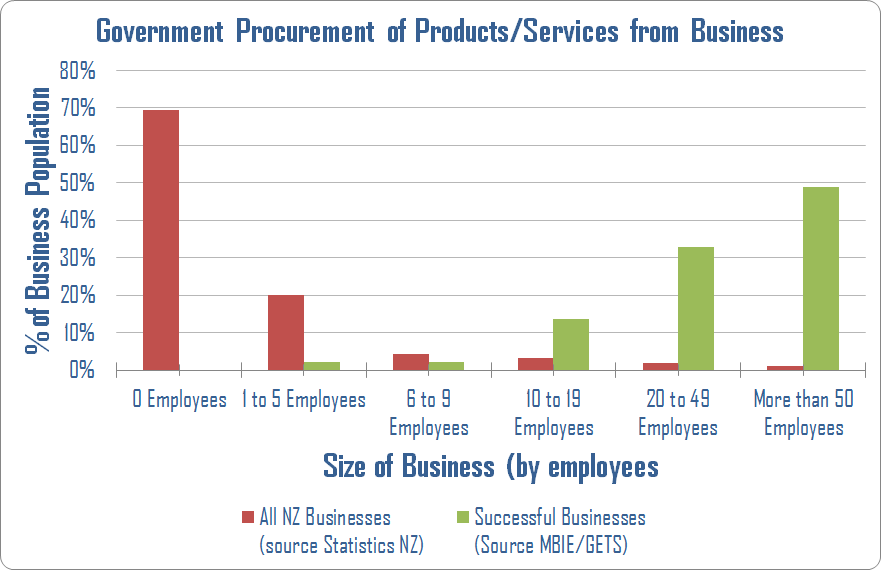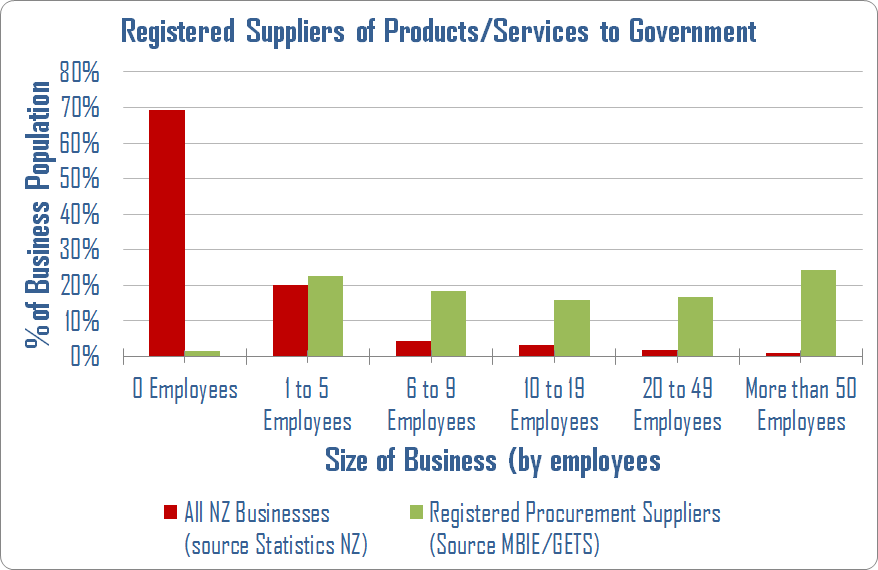+Mike Riversdale +Ed Strafford and I have spoken to 40-50 folk about procurement, and we heard consistently that the process favours large suppliers (small business owner: "
I don't even bother trying to do business with government anymore").
Given that 97% of businesses in New Zealand are SMEs (<20 employees), we wanted to know whether the 'large supplier' bias
[update - see footer] was just felt by the folk we spoke with OR part of something more systemic.
So we harvested some data from the Government Electronic Tenders System (GETS) and Statistics New Zealand to find out.
Here's what we got...

The red bars represent the breakdown of all NZ businesses by size. The green bars are a breakdown of the number of businesses that are 'successful' in winning GETS tenders. So yeah, there's a bias in favour of the big fish.
The government procurement process is meant to be open, fair and transparent, but sometimes in life, unexpected outcomes trump intentions.
We'd love to know what you think...post a comment or
chat with us ...
[UPDATE 21 May]
"
bias" - we have used this word in this post with a particular meaning in mind - the numbers are telling a particular story. We DO NOT mean to imply an "active bias", in the sense Government is actively discruminating. We are grateful to those that have pointed out this double meaning allowing us to clarify.
Please don't hesitate to ask if you have any queries about this or other posts - we are human and fallible as such, we do not have evil intentions :)
[UPDATE 3 June]
The 'Government Procurement of Products/Services from Businesses originally looked like this:

So why did we remove the 'sole traders' from the 'Government Procurement of Products/Services from Businesses...
Because there aren't many sole traders that have registered in GETS (see below):




